Zimbabwe
Leaders of the United Methodist Church have expressed regret after the Ivorian branch decided to leave the union following the repeal of a long-standing ban on LGBTQ+ clergy.
The events are the latest in a series of repercussions in Africa, where United Methodists are in the majority outside the United States, due to disputes over sexuality and theology.
In May, at the church's first legislative meeting in five years, delegates voted overwhelmingly to remove a rule barring "avowed practicing homosexuals" from being ordained or appointed as ministers.
Unlike previous general conferences, which strengthened the ban despite debate, this change means that the Church no longer prohibits them, without necessarily requiring them to be ordained.
Each member church was free to decide for itself, and while some bishops wished to remain in the union, others preferred to disaffiliate.
On May 28, the Church of Ivory Coast, which has more than 1.2 million members, voted to secede from the United Methodists. It is one of the largest branches abroad. The United Methodist Church has approximately 5.4 million members in the United States and 4.6 million in Africa, Europe and the Philippines.
After the vote, the Council of Bishops said Wednesday that "while deploring" Ivory Coast's decision, "we are committed to working with it to become an autonomous Methodist Church."
“While we may not all agree, the strength of our union lies in love, respect, compassion and faith in Jesus Christ,” the Council said.
In Zimbabwe, hundreds of members of the United Methodist Church gathered last week in Harare to protest the decision to welcome LGBTQ+ members.
They sang hymns and held signs declaring that homosexuality is a sin and an abomination.
“Africa is not for sale. No to homosexuality,” read one sign. Church member James Kawaza recalled that "homosexuality is illegal in Zimbabwe."
“The Church has aligned itself with the rainbow movement, which threatens our African traditions and human existence,” says a petition by Church members, asking their bishop, Eben Nhiwatiwa, to to act.
Bishop Nhiwatiwa could not be reached for comment.
Christian denominations in Zimbabwe and other African countries have strongly opposed welcoming homosexuals into the Church.
In January, Catholic bishops in Africa and Madagascar refused to follow Pope Francis' call to allow priests to bless same-sex couples, saying such unions are "contrary to the will of God."
Chester Samba, director of GALZ, an organization representing the LGBTQ+ community in Zimbabwe, expressed little hope of seeing a change in Zimbabwe and Africa's conservative stance.
“I hope that platforms for dialogue will be created to improve understanding and welcome all worshipers, regardless of their sexual orientation,” said Samba, whose members have often faced harassment and stigmatization.



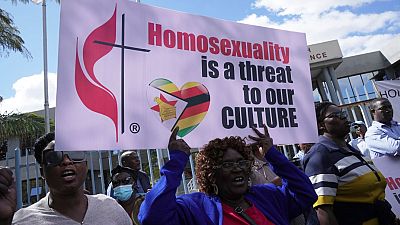


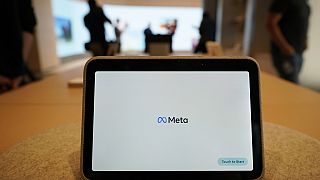
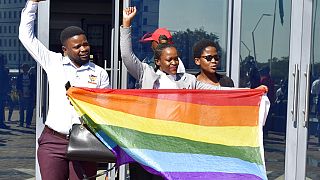

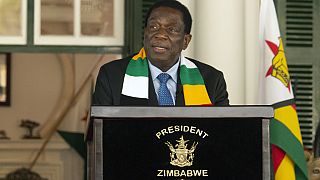
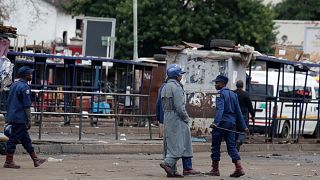



Go to video
Trump bans non-US flags at embassies
00:59
Ghana's top court dismisses challenge to anti-LGBT bill
01:51
Meet the churches welcoming migrants across the world and championing diversity
00:44
Hundreds gather for Pride march in Johannesburg
01:04
Controversy surrounds Ghana's unpassed anti-LGBTQ law
02:33
Residents still shaken 17 months after deadly cult massacre in Kenya